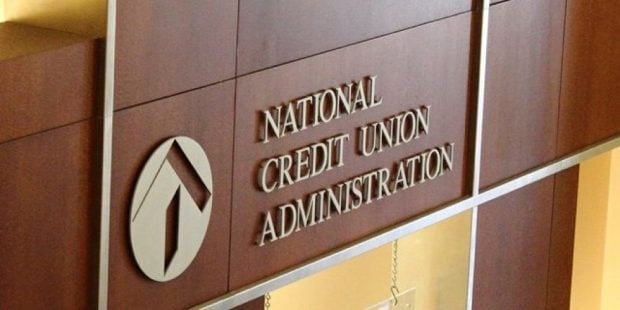 Lobby of the NCUA.
Lobby of the NCUA.
Unexpected budget savings from the coronavirus crisis is masking questionable increases in the NCUA budget, CUNA and NAFCU told the agency last week.
"As outlined in the Budget Justification document, a big part of the apparent fiscal restraint reflected in the numbers is related to the decline in travel expenses in 2020, and the expectation that travel will continue to be restricted into the new year," Mike Schenk, CUNA's deputy chief advocacy officer for policy analysis and chief economist, wrote in a letter to the agency.
Recommended For You
"The credit union industry remains focused on the efficient use of resources and encourages the NCUA to do so as well by achieving year-over-year budget reductions," Curt Long, NAFCU's chief economist and vice president of research wrote in his letter.
The NCUA is proposing a $315.6 million operating budget for 2021, a 0.1% decrease compared to the agency's current budget. The agency estimated that its 2022 budget will reach $341.8 million.
Combining the agency's three budgets — operating, capital and the administrative budget for the Share Insurance Fund — the agency projected an overall budget of $342.5 million, which is 4.9% less than the agency projected for next year and 1.4% less than in 2020.
The NCUA estimated the agency will end this year having spent $18.3 million less than the board budgeted for the year. Most of the savings came from travel budget savings, as agency employees and examiners worked remotely.
The NCUA board is expected to vote on the budget on Friday as Kyle Hauptman was officially sworn in as a board member Monday afternoon, giving the board full membership.
 Kyle Hauptman
Kyle Hauptman Board member Todd Harper has criticized Chairman Rodney Hood's proposal, saying he believes that the agency needs a staff dedicated to consumer protection efforts. He said the banking agency has such a staff, which conducts separate consumer protection tests on financial institutions.
Schenk said that the NCUA does need a separate consumer protection staff.
"Our members believe altering the agency's risk-focused examination process and substantially increasing consumer examination-related expenditures is simply not warranted," Schenk wrote. "No study that we are aware of reveals credit unions broadly, intentionally engage in behaviors aimed at systemically harming consumers."
Schenk said that the NCUA also has not explained why it needs five new employees, as called for in the budget and has not provided details about renovations being done at the agency headquarters building while staff works remotely due to the coronavirus crisis.
"We know about additional outlays arising from plans for office renovations—but know little about how the agency might have contemplated a 'new normal' that might involve more remote and less in-person work and the potential effects on renovations associated with those changes," he wrote.
Long said that the agency's proposed $10.8 million increase in travel costs in 2022 may not be needed if the agency conducts a cost-benefit analysis on whether exams must be conducted in person or can continue to be conducted virtually.
He also cited his testimony from the Dec. 2 budget hearing the board conducted. At that hearing, Long said that the NCUA's budget has increased 44% while the credit union industry has consolidated by 31% during the same period.
© Touchpoint Markets, All Rights Reserved. Request academic re-use from www.copyright.com. All other uses, submit a request to [email protected]. For more inforrmation visit Asset & Logo Licensing.






